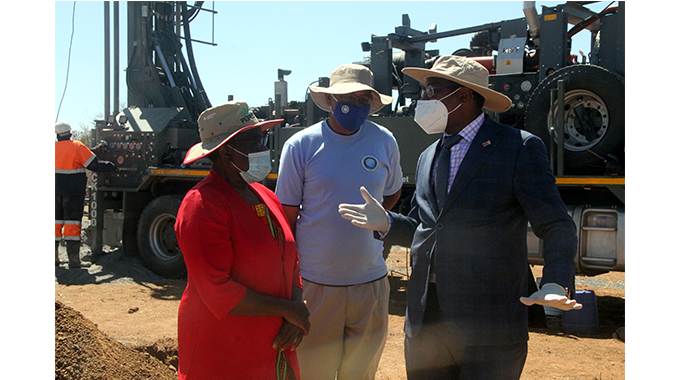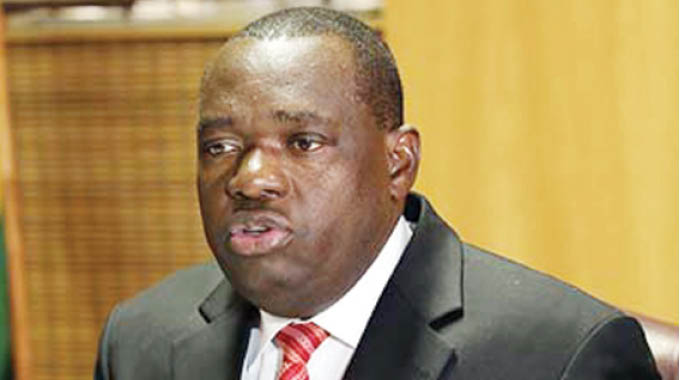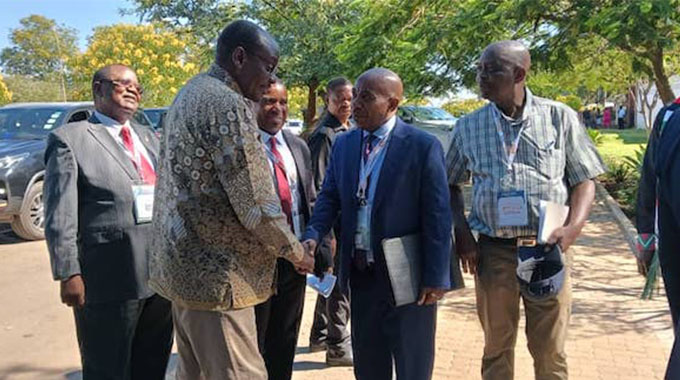Epping Forest water project kicks off

Mashudu Netsianda, Senior Reporter
ZIMBABWE National Water Authority (Zinwa) has started drilling boreholes at Epping Forest in Nyamandlovu as part of efforts by Government to augment critical water supplies in Bulawayo following the release of $205 million for the project.
The money was disbursed to Zinwa which is mandated to supply raw water to the local authority.
Part of the money will also be channelled towards upgrading Mtshabezi Dam pipeline. Treasury released the funds last month as Government affirmed its commitment to address Bulawayo water woes.
So far, five boreholes have been drilled at the Nyamandlovu Aquifer with five more in the process of being drilled and they are expected to be completed before year end. Upon completion, the project will supply Bulawayo with 20 megalitres of water per day.
This is the second time Government has released funds for the rehabilitation of boreholes to augment water supplies after it provided funds to equip Rochester boreholes in Nyamandlovu.
From the $205 million, $130 million will be used to rehabilitate and drill 30 boreholes in Nyamandlovu including the Epping Forest project while the rest will be channelled towards improving supplies from Mtshabezi Dam.
Upgrading Mtshabezi will boost supplies to 27 megalitres daily, up from the present 15 megalitres. The two projects are short term solutions to Bulawayo’s water crisis.
Bulawayo City Council (BCC) is struggling to supply 65 megalitres against a daily demand of about 155 megalitres.
Finance and Economic Development Minister Professor Mthuli Ncube yesterday visited the Epping Forest project to assess progress on the project. He said there was need to expedite the project and alleviate water challenges in Bulawayo.
“As Government through Treasury we released $205 million to Zinwa and they are working with contractors who have started drilling 10 boreholes and laying the pipes because the water has to be taken to a central point and then pumped to a site in Bulawayo.
“In that $205 million the other money will be channelled towards upgrading the pipeline from Mtshabezi Dam, which is another source of water for Bulawayo,” he said.
“Our aim is to rehabilitate all the facilities that supply water to Bulawayo so that water ceases to be a problem in the city. Water from Nyamandlovu Aquifer is very easy to treat because it is clean, and we also want farmers to also benefit along the way as water is pumped to Bulawayo.”
Prof Ncube recently visited the Rochester project in Nyamandlovu which also supplies water to Bulawayo.
“I did promise that we were going to provide more funding for drilling 10 boreholes in the second site, which is Epping Forest and work has started. Five boreholes have been drilled and Zinwa is working on drilling five more so that we get another 10 megalitres of water to increase water supplies to Bulawayo,” he said
Prof Ncube said Bulawayo, by virtue of being the country’s industrial hub, requires a constant supply of water, which prompted Treasury to release funds.
In the medium term, the city is looking at water supply augmentation through upgrading the Mtshabezi-Ncema and Umzingwane-Ncema water mains and ground water extension at Nyamandlovu Aquifer. The medium-term projects require $910 million.
However, the long-term solution remains the completion of the Gwayi-Shangani Dam, a major component of the Matabeleland Zambezi Water Project.
The projects are expected to improve water supplies to the city which has been forced to impose a 144-hour weekly water shedding schedule as it tries to manage dwindling supplies.
The council is however, failing to adhere to its tightened water shedding schedule due to technical faults and theft of power cables.
Residents living in high lying areas have gone for more than six months without running water as low pumping pressure results in water not reaching their homes.
The water shortage has seen residents spending long hours queuing for water at boreholes and council is using bowsers to deliver water to some of the hard hit areas.
The affected areas have become potential Covid-19 hotspots as residents fail to observe social distancing while others do not wear masks.
The water crisis, a result of two successive poor rainy seasons, has seen BCC decommissioning Umzingwane, Lower Ncema and Upper Ncema dams leaving the city drawing water from Insiza, Inyakuni and Mtshabezi dams whose water levels have dropped to 25 percent.
The crisis is expected to worsen during the summer season when water usage increases. — @mashnets











Comments